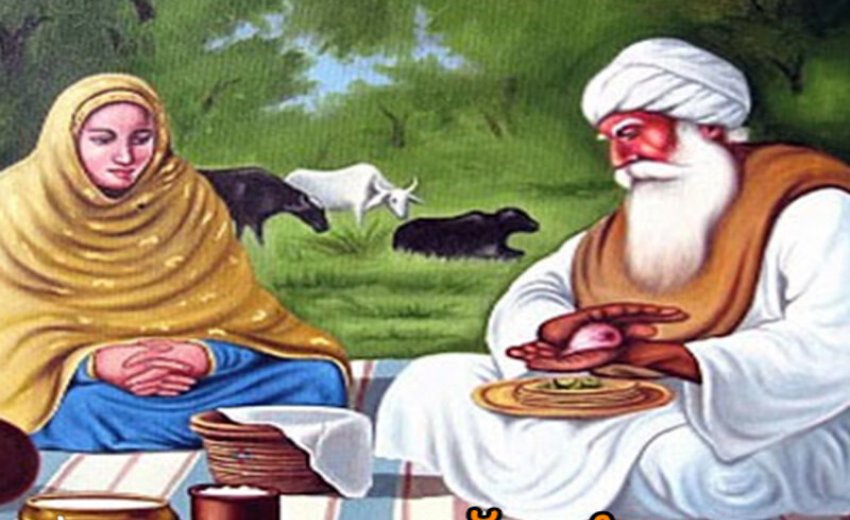Baba Buddha wasn't just a great Sikh saint ; he was a living bridge between Sikhism's birth and its flourishing. He served the first six Guru witnessing firsthand the faith's early chapters. He was born on October 6, 1506, in Katthu Nangal, near Amritsar. Originally named Bura, he was the only son of Bhai Suggha and Mai Gauran.
Guru Arjan Dev Ji, the fifth Sikh Guru, didn't have children from his first marriage. After his first wife passed away without having a child, he married Mata Ganga Ji. At Guru Ji's request, Mata Ganga Ji sought a blessing from Baba Buddha. He broke an onion and predicted that she would have a son who would defeat enemies and stand against oppressors. This prediction came true when Guru Hargobind Sahib, who lived up to those expectations, was born to her. The saying "Dal Bhanjan Gur Soorma" refers to Guru Hargobind Sahib's valiant nature.
Guru Arjan entrusted his son Hargobind to Bhai Buddha for teaching and guidance. When the Adi Granth (Guru Granth Sahib) was set up in Harimandar on August 16, 1604, Guru Arjan appointed Bhai Buddha as the first caretaker. This place is now called the Golden Temple. After Guru Arjan's death on May 30, 1606, Guru Hargobind built Akal Takht, a raised platform near Harimandar, standing eleven feet tall. He, along with Baba Buddha and Bhai Gurdas, exclusively constructed it. Bhai Buddha conducted a ceremony there on June 24, 1606, where Guru Hargobind took up two swords, representing both worldly and spiritual leadership.
Guru Hargobind was held in Gwalior Fort by Jahangir's orders, causing concern among the Sikh community. Baba Buddha Ji led a group of Sikhs to Gwalior as a sign of respect. They circled the Fort reverently, and many Sikhs could be seen traveling on the Grand Trunk Road to Gwalior during that time.
Baba Buddha spent his final days in meditation at Jhanda Ramdas, also known as Ramdas, a village founded by his son, Bhai Bhana. He had moved there from his native Katthu Nangal. When Baba Buddha passed away on November 16, 1631, Guru Hargobind was by his side. According to the Gurbilas Chhevin Patshahi, the Guru helped carry the bier and conducted the final rituals.
In Ramdas, two shrines honour Baba Buddha: Gurdwara Tap Asthan Baba Buddha Ji, where his family lived at the village's southern edge, and Gurdwara Samadhan, marking the site of his cremation.
Baba Buddha embodied the core Sikh values truly making him a guiding light for the Sikh community. His humility, selflessness, and unwavering faith makes him a role model for generations of Sikhs. He remains a revered figure, his legacy etched in the very fabric of the religion.
*Based on an article published in Khalsa Book on 29th September 2010

